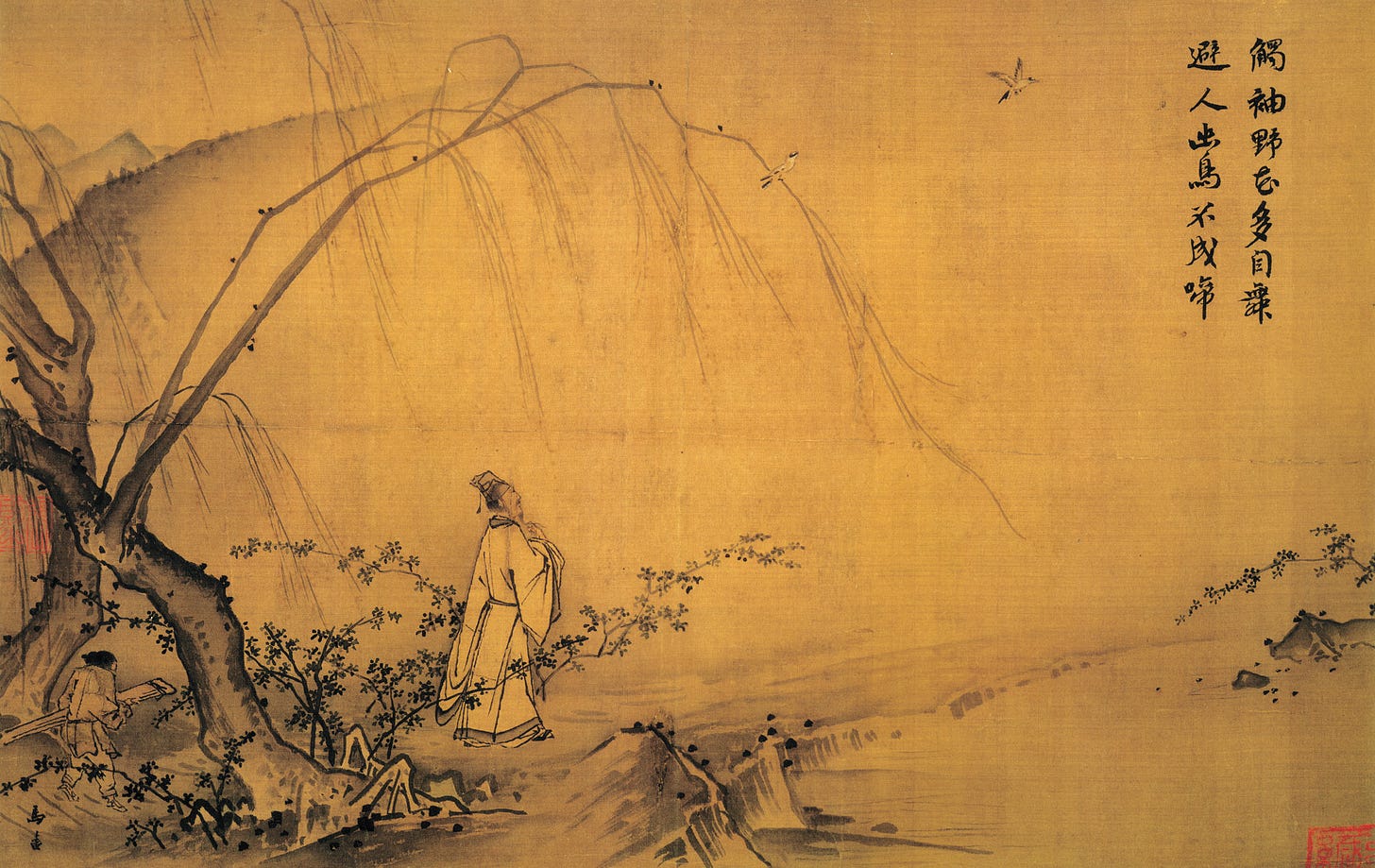In my last post, I ended by quoting a passage from scholar, translator, and writer David Hinton’s excellent book, China Root: Taoism, Ch’an, and Original Zen (2020). His most recent book is Wild Mind, Wild Earth, which is described as exploring “modes of seeing and being that could [if applied] …[reestablish] a deep kinship between human [beings] and earth: [Hinton draws on] the insights of primal cultures and the Ch'an (Zen) Buddhism of ancient China.” In the interview below, which can either be listened to (the podcast is 40 minutes in length) or read, Hinton shares the invaluable insights that led him to write the volume.
You can access the link by clicking here.




I both listened to the interview and then read the article later. Being a former resident of the american Zen world, I was hoping (without knowing I was hoping) that Hinton's argument would take a less familiar path. To be fair I should read the book given the time/space limitations of an interview, the necessity to make a quick summary, etc, but I can't help feel my disappointment. As other commentators point out, there is the less than generous, and I would say standard, superficial criticism of the Christian west that western pursuers of the Eastern paths often possess (having possessed it myself). Given the state and history of Christianity this is understandable enough, and often deserved, but then much is generously overlooked in the admiration of Eastern traditions (such as over-identifying with the passive principle because it brings peace or whatever term you prefer while under-identifying the active principle by which most of our living is done and which is hooked to the machine. While I applaud and think Zen meditation a worthy pursuit, and the transformation that is possible as a result of long, slow practice indispensable, I would argue that oneness or kinship is not enough to actually transform anything in a practical way, and this has proven so. I would say nothing that we have come up with has been sufficient so far, the proof being here we are and here is everything we have brought to the table and we dont know what to do. Technological power is too great, too interconnected, too easily harnessed, and too hungry (its gnashing up the world with each stroke of my keyboard). I could think of more criticisms, but I think he is putting his best foot forward, and I did enjoy much in the interview. The sadness for me, I suppose, is the bleeding wound in the world; its the same wound in the side of Christ, and the spear is my hand and I cant let go. Does it really matter which way I see it?
I'm a huge admirer of Hinton's work. His book Mountain Home (a translated collection of poems from the Mountains & Rivers/Fields & Streams tradition) is by far the best book on Chinese poetry I've ever read - his notes on general concepts and the poets themselves are alone worth the price of admission. I've been tempted by China Root for some time and might now have to pick that up as well.
Thank you for pointing us in the direction of that interview, by the way! A fascinating discussion, with much food for thought, and like the previous commenter, I too hope that you continue to explore Buddhist thought in the future. Keep up the great work!